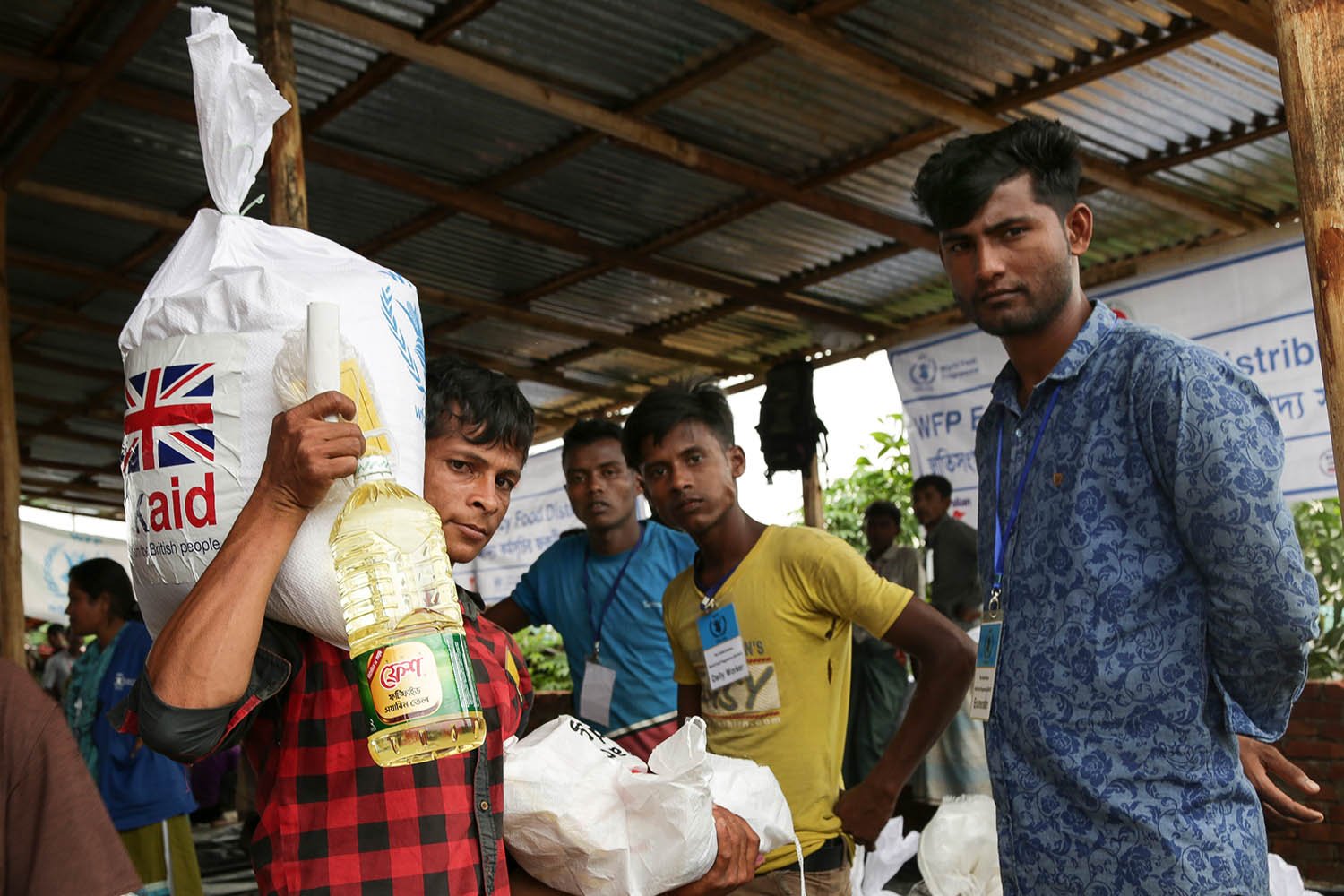Fred Harter
Welcome to the Sensemaker, our daily newsletter. It features calm and clear analysis on the stories driving the news across tech, politics, finance, culture and more. The Sensemaker will appear here every morning, but to receive it in your email inbox, sign up on our newsletters page.
World leaders met in Seville last week for a once-in-a-decade summit that sought to bridge a staggering $3.4 trillion funding gap for efforts to help poor countries grow their economies and overcome climate change.
So what? They didn’t come up with an answer. Donald Trump has decimated the US Agency for International Development and rolled the remnants into the state department. But this is one part of a wider trend that has seen
António Guterres, the UN chief, has warned the cuts will make the world “less healthy, less safe and less prosperous”. But they also raise an age-old question.
Does foreign aid work? For humanitarian aid, the answer is mostly yes. This kind of assistance saves lives in emergencies, providing
When it comes to development aid, the jury is out. This is the most common form of aid, accounting for nearly three-quarters of the $212 billion that rich countries gave away in 2024. It is distributed with the aim of hauling countries out of poverty by
Mixed bag. Much of this aid has done good, boosting school attendance and staving off disease. Cutting support for assistance such as vaccines and HIV medications is forecast to cost millions of lives. But development aid has done little to shift the dial on one of its key purposes: economic growth.
Some states. Between 2003 and 2023, aid flows soared by 146 per cent to reach a record high. But during the decade to 2024, the world’s poorest 78 countries notched slower rates of economic growth than they did in the 1970s, when international aid was far lower.
Cynic in chief. Angus Deaton, who won the Nobel prize for economics in 2015, believes aid does more harm than good. His argument goes as follows:
The evidence. Deaton’s argument is supported by a study published in 2023, which found “aid-dependent democracies become more autocratic”.
Tale of two beneficiaries. The diverging paths of Ghana and South Korea are instructive. In 1957, when Ghana won independence, the pair’s annual GDP per capita was similar. Both received injections of aid. Today South Korea is a high tech economy and Ghana remains one of the world’s poorest places.
Why? South Korea successfully nurtured its private sector through shrewd policy making, whereas in Ghana aid entrenched poorly-run and corrupt institutions.
The lesson. Aid tends to work in well-managed countries. It also helps if it is joined up, but there is little coordination among the array of agencies implementing aid projects today.
Realpolitik. Making matters worse is that aid is often distributed out of self-interest. The US gives huge sums to Israel, Egypt and Jordan because they are allies, not because they are poor. The idea that aid should advance national goals, not simply help the needy, has become increasingly popular elsewhere, not least in the UK where aid efforts have been bundled together with foreign policy.
We not US. Even before Trump’s second term, leaders across Africa, the biggest regional recipient, were turning off handouts. In Ghana there is talk of self-reliance and going “beyond aid”.
Another future… The abruptness of Trump’s ill-considered aid cuts will be hugely damaging. A recent study estimated they could lead to 14 million additional deaths by 2030. But rethinking the broader system could bring positive change.
Share this article
Trump is gambling that the UK will help pick up the tab
I live where the Rust Belt meets Appalachia. I fear more devastation
‘Big, beautiful bill’ will have ugly results
‘An insult’: fury in Belgrade over plans to build a Trump Tower
Receive the best of our journalism direct to your inbox daily or weekly
Social links
The Observer:
The Observer Magazine:
The Observer New Review:
The Observer Food Monthly:
Policies
Copyright © 2025 Tortoise Media
All Rights Reserved
This site is protected by reCAPTCHA and the Google Privacy Policy and Terms of Service apply.



